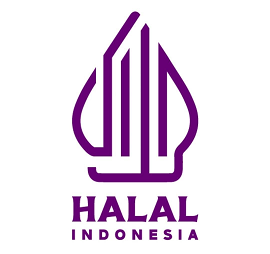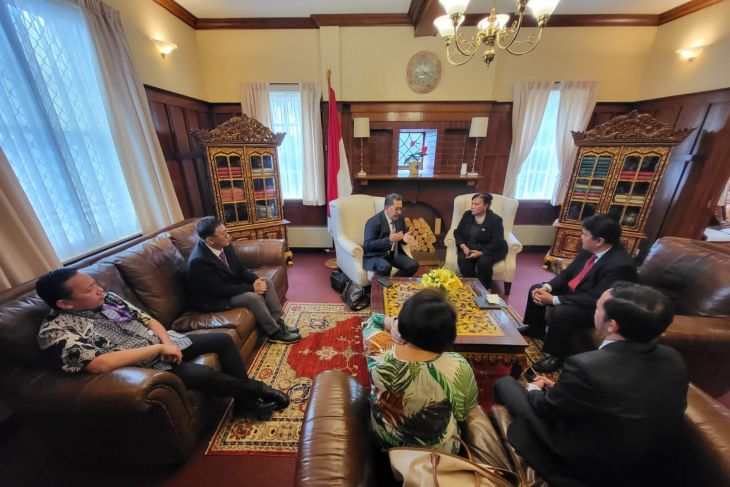HalalFocus: 26 August 2023
Shortened Interview with Raafqi Ranasasmita, Corporate Secretary, LPPOM MUI
What role does BPJPH play in Halal Certification and Accredition?
 BPJPH has a somewhat super body role as they hold several responsibilities in the Indonesian halal certification system:
BPJPH has a somewhat super body role as they hold several responsibilities in the Indonesian halal certification system:
- Issuing halal regulation and provide input for the regulation released by the minister, president and parliament
- Releasing halal certificate
- While the audit is done by a halal inspection agency (=lembaga pemeriksa halal/LPH in the Indonesian legal term)), BPJPH accredits this halal inspection agency.
- Accredit foreign halal certification body so their certificate can be accepted in Indonesia, such a HQC, IFANCA, etc
- Perform control of how halal regulation is implemented, such as but not limited to, certification fraud such as what happens when they certify halal ‘wine’ claiming to be nabiz (fermented grape in water) when it is actually fruit juice: https://voi.id/en/news/296455 This is the shortcoming from labeling a product known as forbidden haram, such as wine and bacon, as a halal version of them. It causes unnecessary confusion.
The above are a few of BPJPH’s main responsibilities.
What is the role of LPPOM MUI and MUI as parent organization to BPJPH?
 MUI (Majelis Ulama Indonesia/Indonesian Council of Ulama) as the fatwa council still issues halal fatwas. But this authority is also shared with the Halal Product Fatwa Commitee made by the government, which mostly handles the self-declare Scheme.
MUI (Majelis Ulama Indonesia/Indonesian Council of Ulama) as the fatwa council still issues halal fatwas. But this authority is also shared with the Halal Product Fatwa Commitee made by the government, which mostly handles the self-declare Scheme.
This scheme is where low-risk products can be self-proclaimed as halal with a quick visit, not by an auditor, but by a mentor with minimum high school education and just a short training.
LPPOM MUI (is an organization originally formed by MUI to handle halal certificates) has had its role regraded to a halal inspection agency, among 57 others (and the number continue to grow based on the size of the muslim population in Indonesia).
This is the ASEAN briefing on Halal Certification in Indonesia: https://www.aseanbriefing.com/news/how-to-obtain-halal-certification-in-indonesia/
Full Interview with Raafqi Ranasasmita, Corporate Secretary, LPPOM MUI:
What role does BPJPH play in Halal Certification and Accredition?
BPJPH has a major role in the Indonesian halal certification system as they hold several responsibilities in the Indonesian halal certification system:
1. Issuing halal regulation and provide input for the regulation released by the minister, president and parliament.
2. Issuing halal certificate based on halal fatwa from either MUI Halal fatwa committee or Halal Product Fatwa Commitee. But this fatwa issuing authority is also shared with the Halal Product Fatwa Committee made by the government, which mostly handles the self-declare Scheme. This self-declare scheme is where low-risk products can be self-proclaimed as halal with a quick visit, not by an auditor, but by a mentor with minimum high school education and a short training.
3. While the audit is done by a Lembaga Pemeriksa Halal-LPH (halal inspection agency ), BPJPH accredits this halal inspection agency.
4. Accredit Lembaga Halal Luar Negeri-LHN (foreign halal body) so their certificate can be accepted in Indonesia
5. Perform control of how halal regulation is implemented, such as but not limited to, certification fraud. One case is halal certification of nabiz (fermented grape in water) through self-declare when the product is actually wine: https://voi.id/en/news/296455 This is the shortcoming from labeling a product known as forbidden haram, such as wine and bacon, as a halal version of them. It causes unnecessary confusion.
These are a few of BPJPH’s main responsibilities. The role is stipulated in Indonesia’s Government Regulation 39 of 2021 (GR 39/2021) and The Omnibus Law 2020 (L 2020) which is strengthen by Law No. 6 year 2023 (L 6/2023). L 2020 (strengthen by L 6/2023) amends law No. 33 year 2014 on Halal Product Assurance.
The amendment includes the introduction of self-declare scheme, the founding of Halal Product Fatwa Committee (as the government made fatwa issuing council) and redesign some aspect of halal certification procedure.
What is the role of LPPOM MUI and MUI as parent organization to LPPOM MUI?
MUI (Majelis Ulama Indonesia/Indonesian Council of Ulama) is umbrella of muslim organization in Indonesia. A part of MUI is fatwa commission that issues halal fatwas which also includes fatwa not related to food drugs and cosmetics.
LPPOM MUI is an organization originally formed by MUI to handle halal certificates due to the pork lard issue and have been serving the ummah since 1989. It is one of the largest halal bodies globally with 1.001 auditor with bachelor to doctoral degree from reputable university from Indonesia and abroad.
LPPOM MUI has branches in the capital city of 34 province with international branches in 3 countries located in Busan, Seoul, Shanghai, and Taipei. The clientele spans over 65 countries and has been trusted by 10.068 company with 238.035 product (data per 31 July 2023).
In BPJPH halal certification scheme, LPPOM MUI act as a halal inspection agency. For a company pursuing BPJPH halal certification they can choose LPPOM MUI as halal inspection agency. The company website is accessible in https://halalmui.org/
In addition, LPPOM MUI offer certification schemes such as for ESMA-UAE and soon to be accredited by Helal Akreditasyon Kurumu (HAK)-Turkey and Gulf Accreditation Committee (GAC) and Saudi Food and Drug Authority (SFDA)-Saudi Arabia. These mandatory schemes enable access for halal foods into UAE, Saudi Arabia, and Turkey.
LPPOM MUI provide customer care in customercare@halalmui.org, local hotline 14056 and Whatsapp +62 811-1148-696. The working hour is Monday-Friday, 08.00 – 17.00 WIB (GMT+7).
Companies can also join the ‘Introduction Of Halal Certification’ Class to understand the system in detail and discuss how LPPOM MUI can offer halal certification solutions. The link can be found in https://halalmui.org/en/introduction-to-halal-certification/
How to export to Indonesia and claim halal?
For business-to-business (B2B) products (non-retail), they can either have BPJPH halal certificate or halal certificate issued by Lembaga Halal Luar Negeri-LHLN (Foreign Halal Body) accredited by BPJPH. Each halal certificate issued by a Foreign Halal Body should be registered by BPJPH. Currently BPJPH has not issued a formal list of accredited ‘Foreign Halal Body’.
For retail products, Indonesian Food and Drug Authority Badan Pengawas Obat dan Makanan Company must apply to the Halal Product Assurance Agency (Badan Penyelenggara Produk Halal – BPJPH), the governing institution under the Ministry of Religious Affair that is tasked with implementing Halal product assurance. The application is performed through their website https://ptsp.halal.go.id/ (the website and BPJPH’s customer service is only available in Indonesian language). A requirement is having a halal product supervisor with training to accredit training body and halal supervisor certification of professional competency.
LPPOM MUI can assist companies for BPJPH’s registration and fulfilling both requirements. Once completed, the applicant can choose a Halal Inspection Agency (Lembaga Pemeriksa Halal – LPH) to conduct halal audit according to the Sistem Jaminan Produk Halal-SJPH (Halal Product Assurance System). The inspection must take place within 15 days of registration (with additional 10 days) So, the company needs to make sure that there is proper training, adequate implementation and they are ready for inspection.
We suggest for the company coordinate with LPPOM MUI before BPJPH application to make sure that the timeline is met, including but not limited to, visa preparation. Post audit, The LPH will deliver the results to the Indonesian Ulama Council (Majelis Ulama Indonesia – MUI), the institution that will determine if the product or service in question is deemed Halal through a halal decree.
After the ruling has been issued, the BPJPH will issue the Halal certificate within one business day. The Halal certificate is valid for four years but revised by Law No. 6 year 2023 to be valid for lifetime if there is no change in the product’s composition and/or proses produksi halal-PPH (halal production process).



